Last updated on March 2nd, 2025
When your pressure drops too low, the boiler will stop working, which means no heating or hot water. The pressure should be between 1 and 1.5 bar when the radiators are cold. I have been repairing and servicing boilers for over a decade and have fixed many boiler pressure problems.
Potterton boiler pressure explained
Potterton boilers have a safety device called a pressure relief valve (PRV). If the pressure reaches 3 bar the PRV will open and the water will be let out as a safety precaution, the pressure gauge will drop to zero.
If your pressure is under 1 bar, you should increase it. If it’s over 1.5 bar when the heating is off and the radiators are cold, you should reduce it. The boiler pressure can rise to over 2 bar when the heating is on. This is perfectly normal as the heat expands the water inside the radiators when the heating is turned on.
Boiler pressure too low
Low boiler pressure is very common and can cause your boiler to stop working. If your Pottoerton boiler pressure becomes too low you need to repressurise it. If the pressure drops below 1 bar you should increase it.
How to increase the pressure:
- Open one valve fully (only if there are two valves)
- Open the other valve slowly until you can hear the water
- When the pressure has reached 1 to 1.5 bar close both valves
- Reset the boiler (if needed)
- Turn the heating on
Do not open both filling loop valves fully straight away as the water pressure in the house might be too much for the boiler and cause the pressure to shoot up too high.
Potterton filling loops
A filling loop is built-in on the bottom of modern combi boilers, but it could also be on the pipework. Usually below the boiler or in the hot water cylinder cupboard if you have one, but an external flexible filling loop could be anywhere on the system.
There should be one of these types of boiler filling loops under your Potterton boiler:
- Two black or blue lever-type handles: Turn a quarter turn each to open and close.
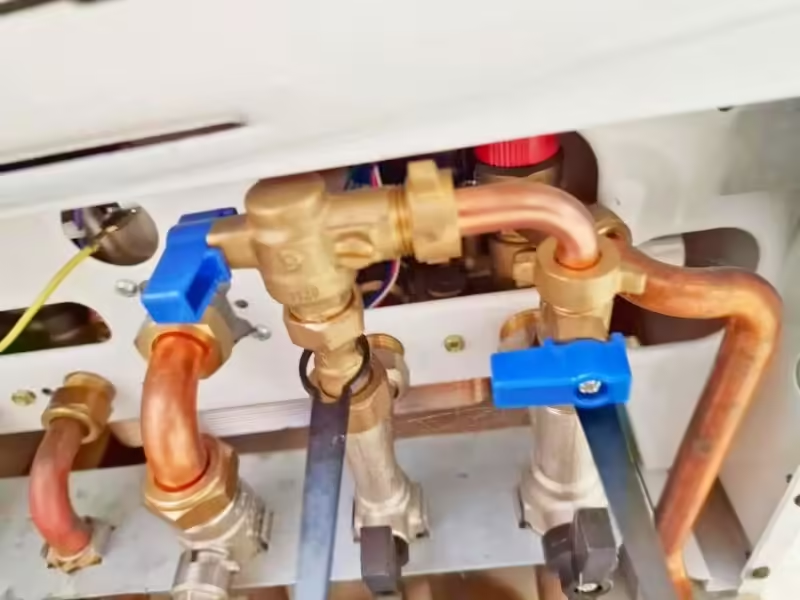
- Easy-Fill green handle: Pull and then release to stop filling.

- Two knobs: Turn anti-clockwise like taps to open, and fully clockwise to close.
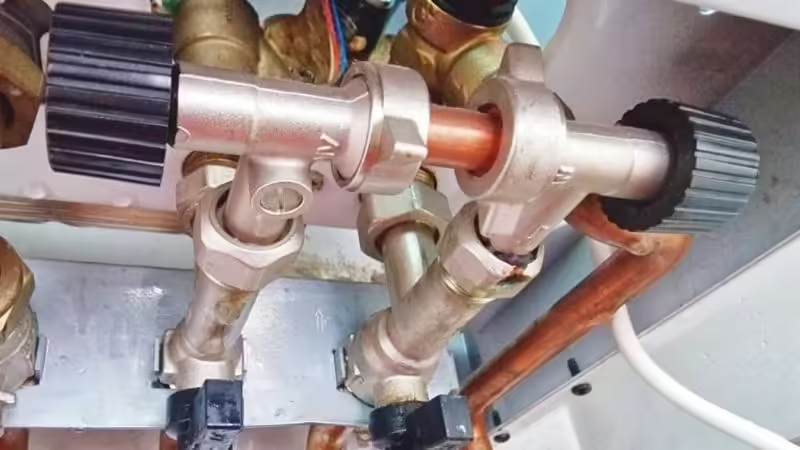
How often should you need to repressurise a boiler?
You shouldn’t need to repressurise your boiler at all. A pressurised heating system is sealed so if you need to increase the pressure regularly then the water is getting out. If you have to repressurise once or twice a year I wouldn’t worry about it.
Boiler pressure too high
There are many reasons for a boiler’s pressure to be too high. If the pressure reaches 3 bar the PRV will let the water out. So, if your pressure is above 1.5 bar when the heating is and the radiators are cold, you should reduce it. To reduce the pressure you must let some water (or air) out of the heating system.
How to reduce boiler pressure:
- Bleed a radiator
- Open a drain off valve
- Open the pressure relief valve
- Crack a nut
- Magnetic filter
The first thing you should do to reduce the pressure is bleed the air out of every radiator. There might not be any but if there is, removing it will drop the pressure. Bleeding water out of one radiator is the easiest way to reduce boiler pressure but also the slowest.
Boiler keeps losing pressure
A boiler that keeps losing pressure means there’s a problem that needs to be fixed.
Most common reasons:
- A Leak on the central heating system
- The expansion vessel has lost its air
- Pressure relief valve passing water
- Filling loop open
You should check if the pressure is rising to 3 bar when the heating is on to narrow down the problem. If the pressure is dropping to zero without rising too high first, you most likely have a leak somewhere on the system.
Boiler valve positions
All the Potterton boiler valve positions below are fully open.
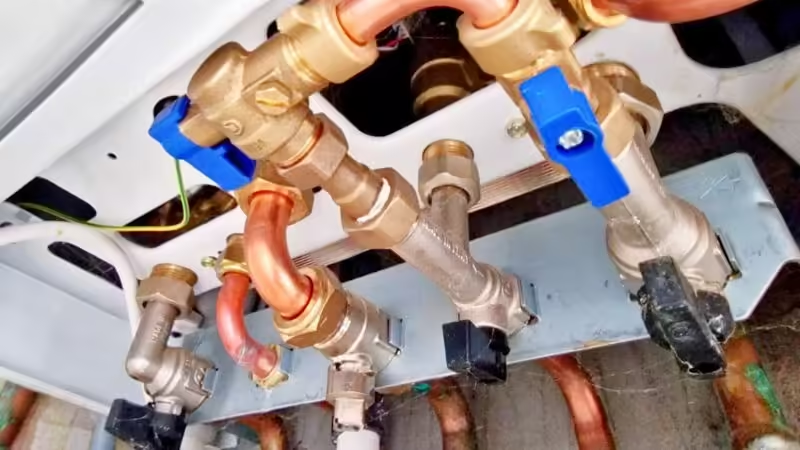
- Black valves: All 3 black handle valves in the photo are open which they are meant to be at all times. They are (from left to right) the heating flow, cold water inlet, and heating return valve.
- Blue valves: The blue handle valves are the filling loop valves which are fully open in the photo and are increasing the pressure. They should be closed unless repressurising the boiler.
Summary
If your boiler pressure is too low or too high, fixing it is important. Repressurising a Potterton boiler is an easy job. It can save you from paying a plumber to do an easy task.
If you have to keep repressurising your boiler, you should get that problem found and fixed as soon as possible.
Have any questions? Drop them in the comments below, I’ll do my best to help! If you found this post helpful, don’t forget to share it with others who might benefit.
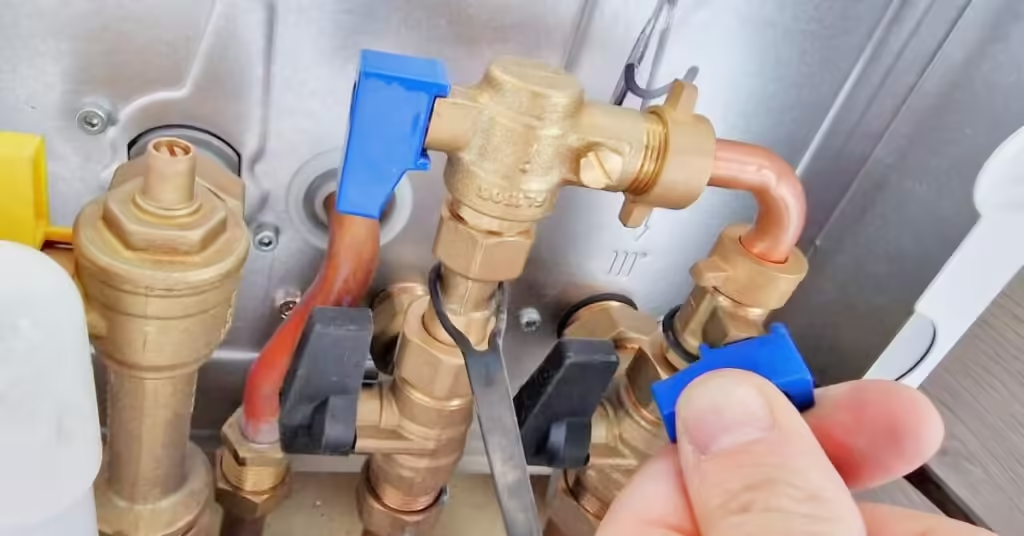

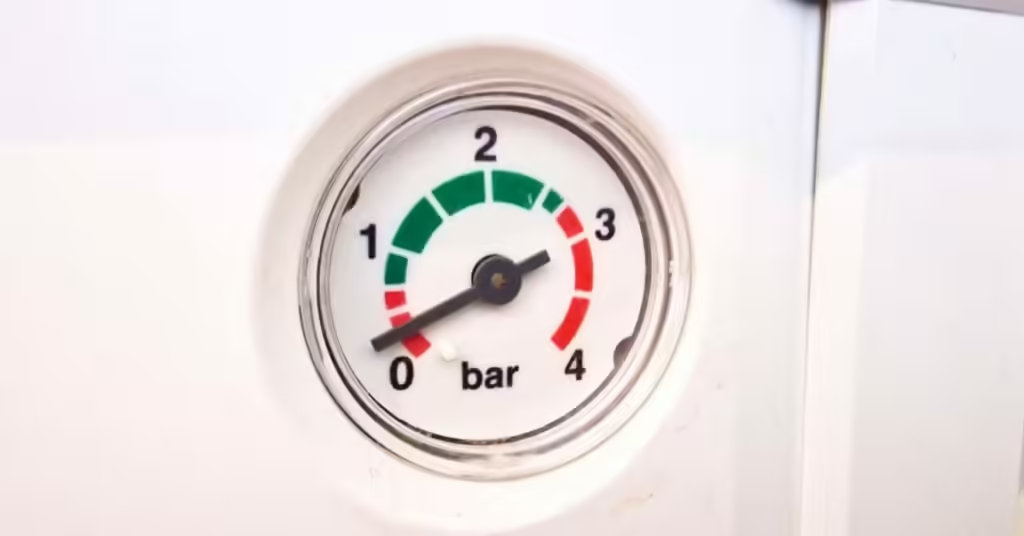
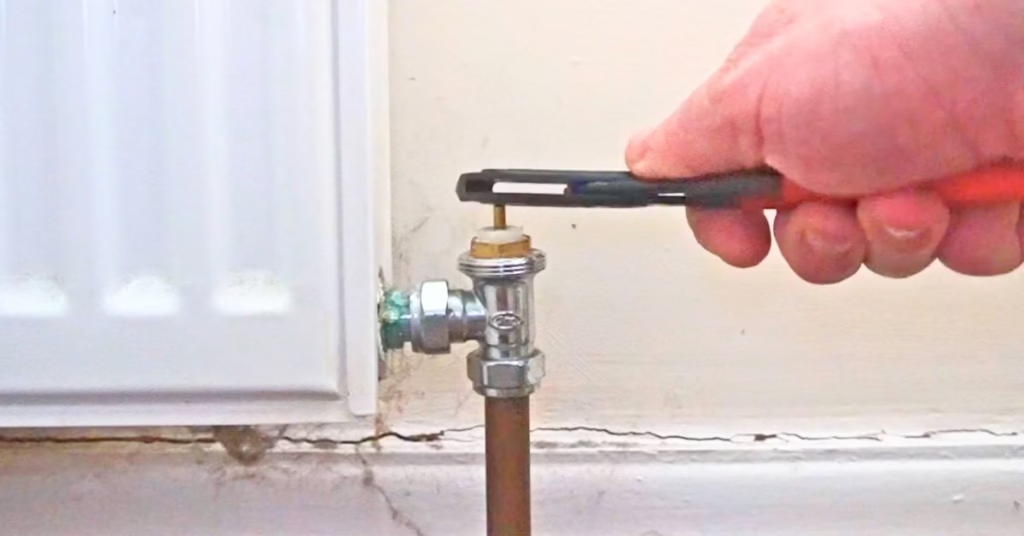

I am a single female of 63 years old and pretty clueless when it comes to the particulars of a working boiler but thanks to your “how to” guide for repressurising my potterton boiler, with your easy logical instructions, I must thank you as I’m sure that you have saved me a considerable amount of call out fees. Taking note of your advise and recommendations I only have to repressurise my boiler once a year. You’ve also given me the confidence to ‘have a go!’ So thank yo so very much.
You’re welcome very much Alison. Love the feedback and good on you for giving it a go!